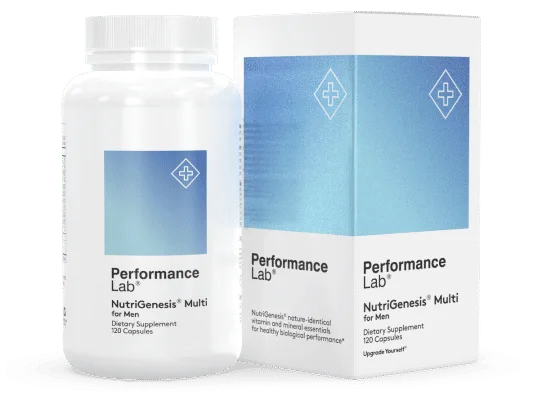Ever take your daily essentials and ask yourself – why do multivitamins hurt my stomach? That could be due to the high concentration of minerals and vitamins that can rile up your tummy.
So, what’s the fix when you experience stomach pain when you take multivitamins? Simple! Take vitamins with food, or go for a lower-dose option.
Keep reading to unravel this mystery and find easy remedies to keep your stomach happy!
Are Certain Vitamins More Likely To Cause Upset Stomach?
Some vitamins are more likely to cause stomach upset, especially when taken in high doses. Vitamin C, also known as ascorbic acid, is acidic and can irritate the stomach lining.
Taking high doses of vitamin C on an empty stomach may cause nausea, diarrhea, and abdominal cramping [1].
The recommended daily amount of vitamin C is 75-90 milligrams so taking 500 mg or more may lead to GI issues [2].
B vitamins like niacin (B3), pyridoxine (B6), and cobalamin (B12) can also cause nausea and stomach pain when doses are too high.
Minerals like iron, calcium, and zinc may provoke similar stomach troubles. Pay attention to the specific vitamins, minerals, and amounts your multivitamin contains.
Are You Taking The Multivitamin With Or Without Food?
Always check the label on your multivitamin bottle for the recommended dosage and usage instructions.
Most multivitamins are best absorbed when taken with food.
Fat-soluble vitamins like A, D, E, and K rely on dietary fats for absorption.
Water-soluble B-complex vitamins and vitamin C are absorbed more easily on an empty stomach.
Taking a multivitamin on an empty stomach when it’s meant to be taken with food can certainly upset your stomach.
Try taking your multivitamin with a meal to see if it prevents GI distress.
Could The Dosage Be Too High?
When it comes to vitamins and supplements, more is not necessarily better. Taking mega-doses of certain nutrients can actually cause toxicity and undesirable side effects like stomach pain, nausea, diarrhea, and constipation.
Most vitamin products contain 100% of the recommended daily value for most vitamins and minerals.
Check how many milligrams or micrograms your multivitamin provides for each nutrient.
Ask your doctor or pharmacist if the doses seem appropriate for your age, gender, and health status, and avoid taking more than one multi vitamin per day unless instructed by your healthcare provider.
Are You Sensitive To Specific Ingredients?
Some individuals may be more sensitive to particular ingredients found in vitamin and mineral supplements. For example, magnesium can have a laxative effect when taken in higher doses [3].
Iron supplements commonly cause constipation and stomach upset. High doses of zinc may provoke nausea and vomiting.
Think about when your stomach troubles occur in relation to taking your daily vitamins. Keep a log of any side effects.
Mention your observations to your doctor or pharmacist to pinpoint any problematic ingredients. They may suggest an alternative form or brand.
Could You Have An Undiagnosed Intolerance?
Gastrointestinal distress from a multivitamin could potentially indicate an undiagnosed food allergy, intolerance, or gastrointestinal condition.
Lactose, gluten, soy, yeast, and additives like magnesium stearate are common allergens found in vitamin and supplement formulations.
If your stomach woes persist, make an appointment with your healthcare provider for evaluation. Diagnostic tests like an elimination diet supervised by a registered dietitian can help identify sensitivities.
Your doctor may order blood work or imaging to rule out inflammatory bowel disease, celiac disease, or stomach ulcers.
Are You Also Taking Medications?
Ingredients like calcium, magnesium, and iron can interact with certain prescription and over-the-counter medications.
Antibiotics like fluoroquinolones, tetracyclines, and nitrofurantoin bind with mineral supplements impairing absorption [4].
Multivitamins with vitamin K can decrease the effectiveness of blood thinners.
Stomach acid reducers like antacids and proton pump inhibitors also hinder vitamin absorption. Review all medications and supplements with your pharmacist to identify any problematic combinations.
Should You Switch To A Gentler Formula?
If your current vitamin product seems to reliably cause stomach upset, switching brands or formulas may help.
Some options that are more gentle on the stomach include:
- Gummy vitamins with less iron and gentler binders like pectin.
- Liquid multivitamins that absorb under the tongue.
- Sprinkles, powders, or dissolvable tablets that are easier to digest.
- Encapsulated products with enteric coatings to bypass stomach acid.
Discuss alternative delivery methods and doses with your doctor to find vitamins that agree with you.
Getting nutrients from a varied, whole food diet is ideal, but supplements can fill in gaps when needed.
Have You Tried Altering The Dosage Schedule?
Some find relief by taking their multivitamin with meals or spreading doses throughout the day. You could try:
- Taking half the daily dose with breakfast and the other half with dinner.
- Alternating one tablet with breakfast one day and dinner the next.
- Taking a gentle, basic multivitamin in the morning and single nutrient supplements like vitamin C or magnesium separately.
Play around with tweaking the timing and amounts to see what sits well with your digestive system.
You should also pay attention to how spacing out your supplements affects symptom relief.
When Should You Seek Medical Advice?
Minor gastrointestinal discomfort from vitamins is usually nothing to worry about.
But if you experience severe, persistent, or worsening stomach pain, vomiting, appetite changes, or rectal bleeding after taking supplements, seek prompt medical attention. These could be signs of something more serious.
For peace of mind, you should schedule an appointment with your family doctor or gastroenterologist for evaluation.
They can help identify any underlying conditions and advise on the safest vitamin regimens for your situation.
Don’t take chances with your gut health!
Why Do Multivitamins Hurt My Stomach? – Final Thoughts
Navigating multivitamins doesn’t have to be a balancing act.
With careful scrutiny of large amounts of nutrients and adjustments, you can find supplements less likely to cause stomach upset.
Remember, they should complement, not replace, a hearty diet.
Consider Performance Lab NutriGenesis Multi – a brand renowned for its digestibility and tailored nutrients.
Don’t ignore persistent side effects; your stomach’s peace is paramount.
Luckily, with NutriGenesis Multi, you’re not just avoiding upset, you’re embracing a healthier you!






Leave a Reply